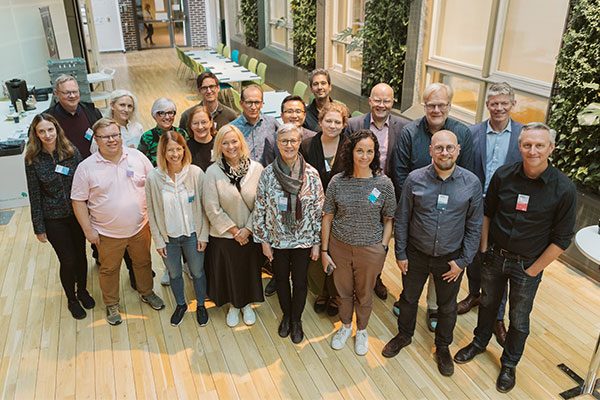Antimicrobial resistance (AMR) is one of the biggest global health problems, whose complexity requires novel approaches and collaboration across all scientific disciplines. The Nordic countries have been at the forefront of research and development in this area for decades, and several centres with a multidisciplinary approach to the topic have been created in recent years.
The Uppsala Antibiotic Center hosted the first meeting of Nordic AMR centres with delegates from the Umeå Centre for Microbial Research, the Centre for Antibiotic Resistance Research in Gothenburg, the Turning the Tide on Antimicrobial Resistance Network from Oslo, the Centre for New Antibacterial Strategies in Tromsø, the International Centre for Antimicrobial Resistance Solutions in Copenhagen, the Multidisciplinary Centre of Excellence in Antimicrobial Resistance Research in Helsinki, and the Centre for Antimicrobial Resistance in Western Norway in Bergen.
Different approaches to AMR research, action and education
Part of this first meeting focused on learning about the structures and work of the different centres. From research schools to centres focused on excellent research on antimicrobial resistance, the centres participating in the meeting highlighted the many ways AMR experts work together to ensure that there are solutions to the resistance problem. These initiatives show how cross-disciplinary approaches from academia, healthcare, policy, and industry can come together to carry out the much-needed advances in this area.
An initiative for further cooperation across the Nordics
During the brainstorming and discussion part of the meeting, the delegates brought forward the importance of a future alliance of Nordic AMR centres where the strengths and complementary competencies of the different centres can be pulled together and shared. Cooperation between the centres will ignite collaboration at scientific, policy, and educational levels across the Nordic region. Several suggestions focused on expanding and sharing the educational programmes already present at the different centres, while other ideas for the alliance aimed at arranging novel scientific exchanges, Nordic symposia, match-making events, and applying for national and international funding.
The very high interest from the different centres and ambition to strengthen the areas of research, education and outreach should provide a good start for a strong Nordic collaboration on the AMR problem.
